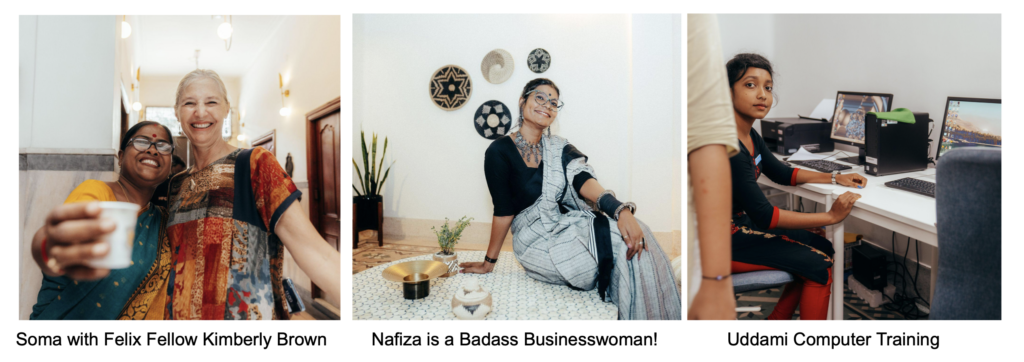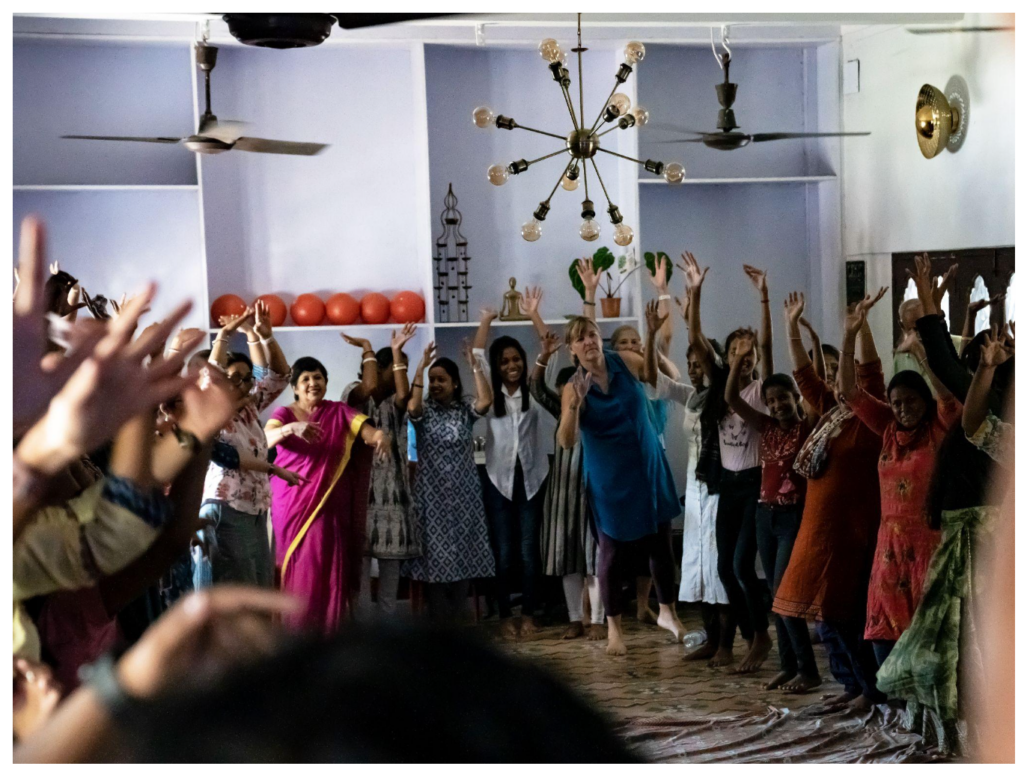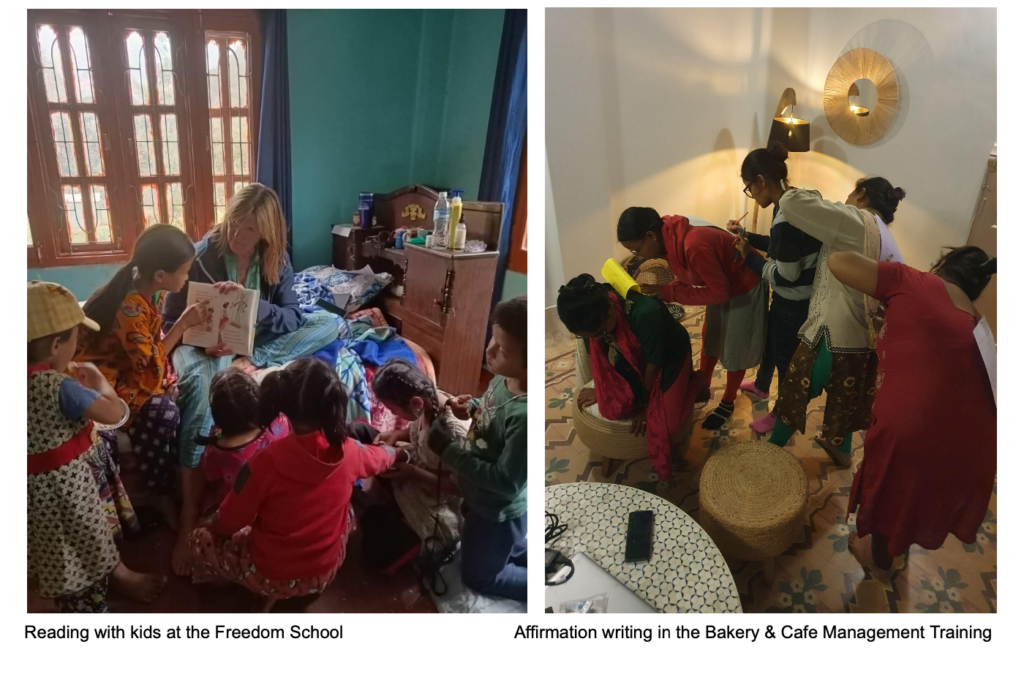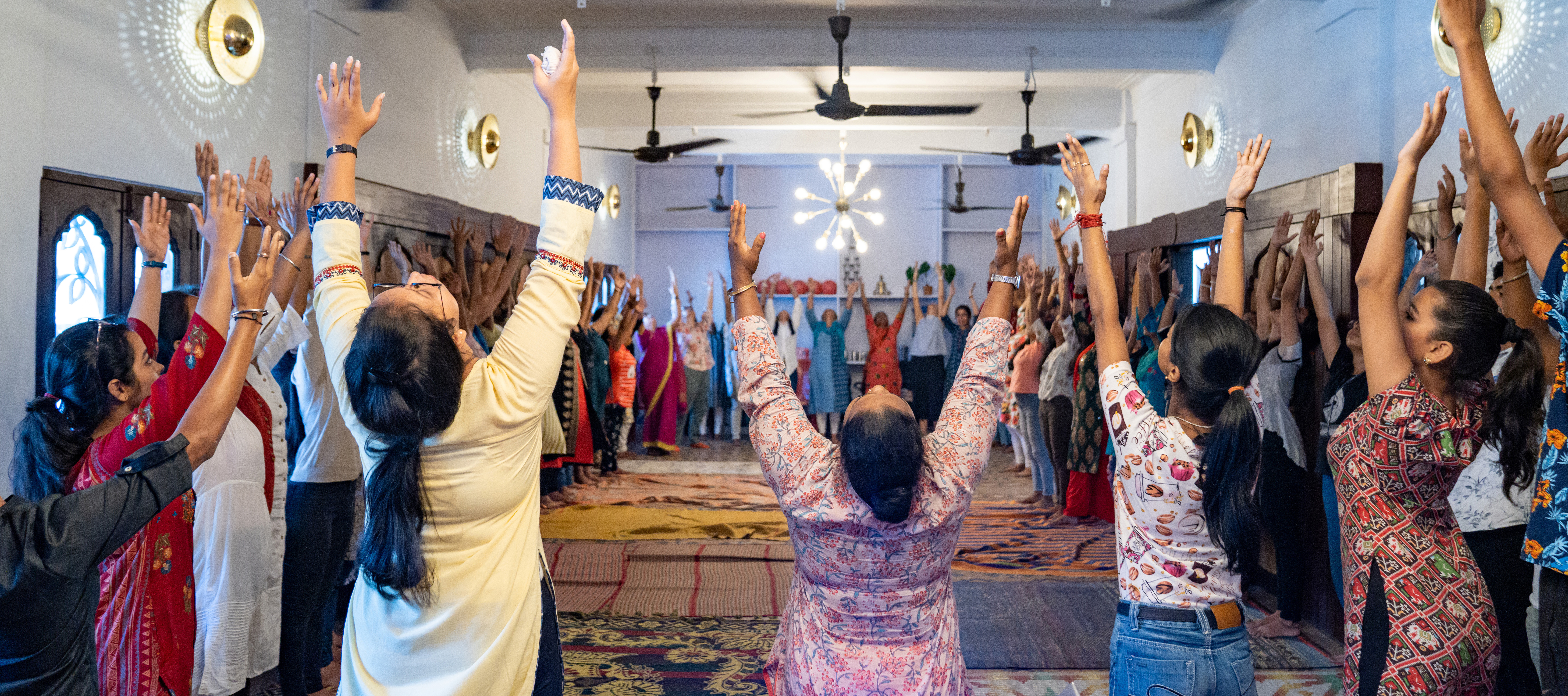In February, I traveled to India and Nepal with other staff and members of our community to check in on programs and spend time with the women and girls. This time, unlike the trip report I normally write, I want to share some very personal reflections.
This trip was, in so many ways, a full circle experience, as many things that happened on the trip powerfully reminded me of similar experiences in the early days of HFC, but now at a different stage in our development. As they say in India, ‘Same, same, but different’.
Twenty years ago, I first learned about the global crisis of child sex trafficking in a documentary film at Tribeca Film Festival. I made the decision to dedicate the rest of my life to working on this issue, in the service of survivors like those in the film, working alongside local activists like the ones in the film that so inspired me.
One year later, in 2004, I first stepped foot in Nepal. The next day, I got on a bus with 100 survivors from the Maiti Nepal shelter and drove up to a mountain village to conduct an awareness campaign. The survivors went door to door sharing their stories, to try to prevent other girls from being trafficked, in a village where many girls had been reported missing and assumed to have been trafficked to India. I watched in awe, as a scene from the documentary came to life in front of me.
This year, I walked every day for two weeks through a very similar mountain village, with a similarly high rate of girl trafficking. This time though, the village is like my second home, as it is the site of the Freedom School.

This school and anti-trafficking project was founded by an inspiring survivor-activist, Anjali, who I first met in 2009 at a shelter in Kolkata, just one week after she was rescued. She was 14, a sweet and engaging girl, but still bearing the scars of her recent extreme trauma. Today, Anjali is my beloved daughter, co-author, and partner in the work. I am so proud to see all that she has achieved, through relentless hard work and courage, and because – through many years and struggles – she refused to let go of her dream. And now I get to be part of the village community, picking potatoes with parents at our school’s community farm, making momos (dumplings) with Anjali and our dormitory girls, or pushing a wheelbarrow with kids from our school.
Twelve years ago, I first met Sonali at a shelter in Kolkata. She was finishing high school, and she started coming to our jewelry training after work. After graduation, she began working full time in the jewelry program, and used her earnings to move out of the shelter, and to go to college. Eventually, she joined our management team. This year, I got to accompany Sonali on her first airplane trip, using her brand new passport, as she traveled to Nepal for a three month teaching fellowship at the Freedom School! Watching her brilliance and natural rapport with the kids – especially the girls who are living in our dorms and far from their families – made my heart sing in ways that I cannot express. Seeing girls that came through the program step into their own power to change the world is even better than doing that work yourself!
When we first began working in Kolkata, we struggled to find space for our local team to conduct programs. Our first workspace in Kolkata was literally a shed with holes in the wall, looking out onto an alley of brothels. No electricity, no fans, no windows. It was rough! Today, we are blessed with a 5 year lease in a beautiful three-story building, located right in the red light area where many of our girls live.
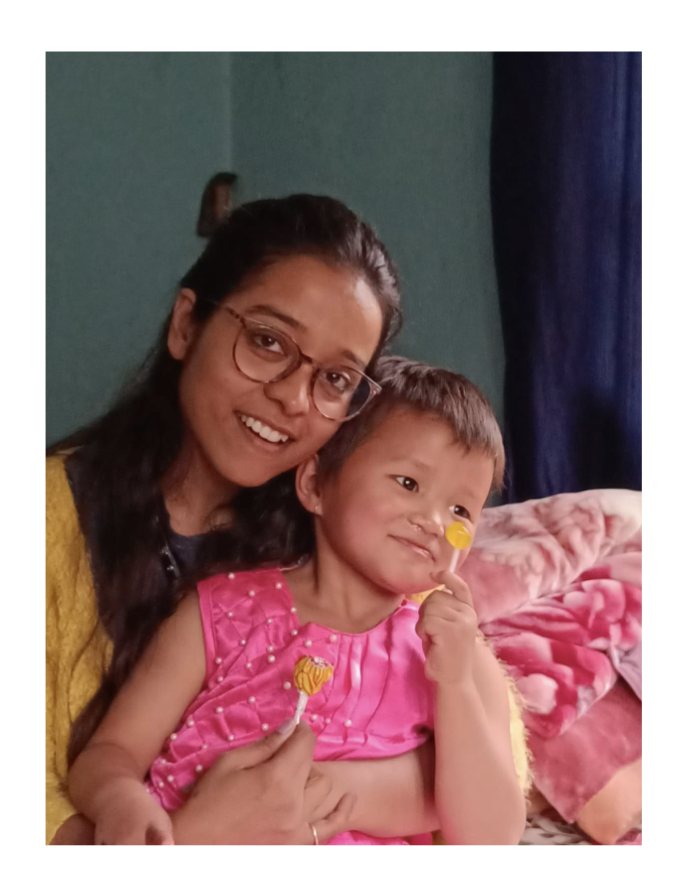
Our Learning Center has been lovingly restored by a female contractor (Rimjhim) and designer (Danielle) who customized every room to meet the specific needs of our girls and staff. It is Kolkata’s first nonprofit co-working space and we feel proud to share this uplifting space with like-minded groups, and in so doing, to amplify their ability to help the most marginalized women and children.
In 2008, I first walked through the Bowbazar red light area. It was brutal to witness the suffering and oppression of my sisters there. I remember going home that night feeling utterly discouraged and powerless to help them. But when I visited our Learning Center in February, I saw many women and girls from Bowbazar, in the computer training program, in the Photography class, and in the Bakery and Cafe Management Training. From the first batch of Bakery trainees who graduated in December, every single woman had been offered a job and most of them were already working successfully and happily in their new jobs.
With our local partner organization, Hamari Muskan, we also offer safe space and education to over 200 children born into Bowbazar. I no longer feel discouraged or powerless. There is much hope for this community and it feels wonderful to be helping unlock their potential.
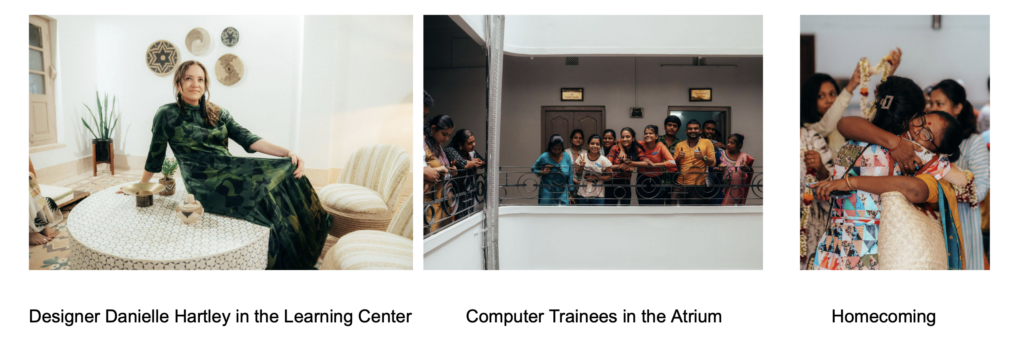
Our first India staff members, Nafiza and Soma, were referred to us by a small computer training nonprofit called Uddami. They had just completed their training when we hired them. Today, Nafiza is our Country Director, Soma is our Program Director, and Uddami is training girls right in our Learning Center. We have come full circle, together. We are planning to expand and deepen our partnership with Uddami, so we can offer computer training to more vulnerable youth in Kolkata.
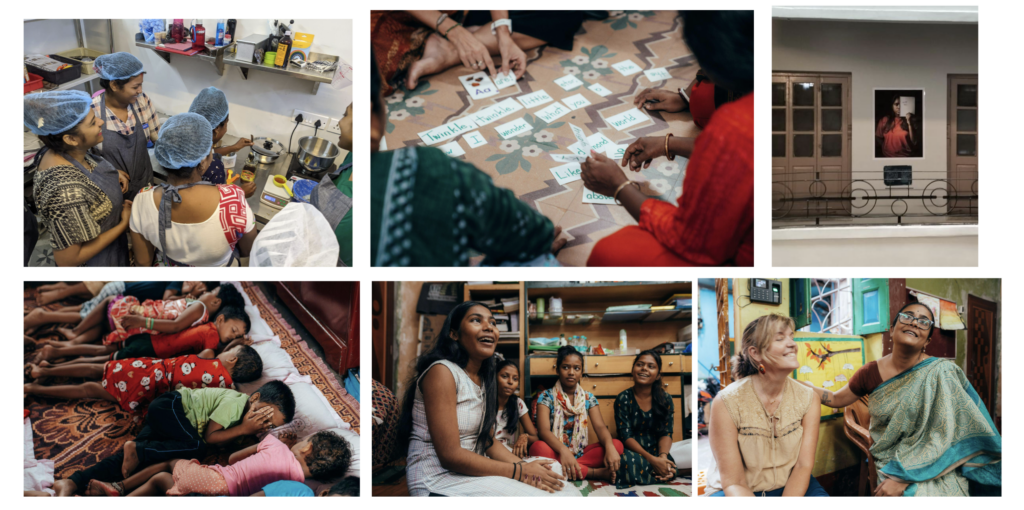
So many things have come to fruition, after many years of hoping and hard work on many people’s part. And of course the challenges circle back too. We are still learning, we make mistakes, we have conflicts and we work through them. The challenges facing women and girls in South Asia are still extreme. For many, oppression and abuse are a daily reality, and trafficking is just one bad harvest or medical crisis away.
And so, the work continues. The love continues. We stand together, with survivor leaders and local grassroots partners, and with all of you who support us and hold us up with your encouragement and compassion. Together, may we again come full circle for the next generation of girls.
